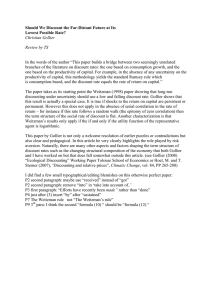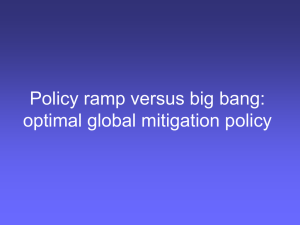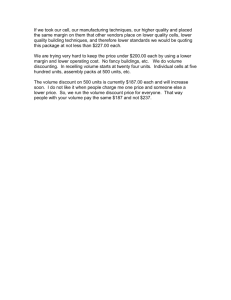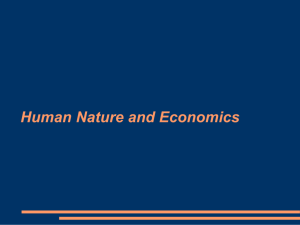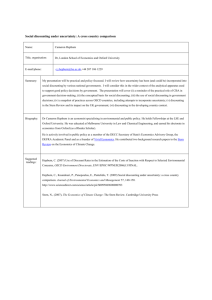20.05 Summary, biography and suggested readings word
advertisement
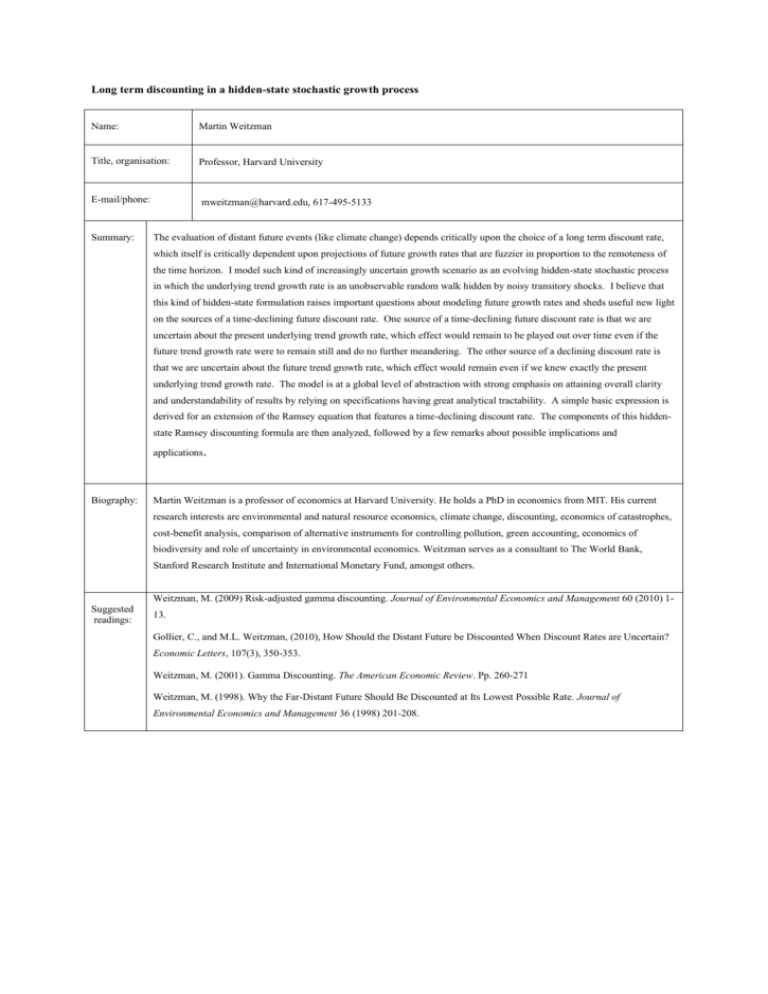
Long term discounting in a hidden-state stochastic growth process Name: Martin Weitzman Title, organisation: Professor, Harvard University E-mail/phone: mweitzman@harvard.edu, 617-495-5133 Summary: The evaluation of distant future events (like climate change) depends critically upon the choice of a long term discount rate, which itself is critically dependent upon projections of future growth rates that are fuzzier in proportion to the remoteness of the time horizon. I model such kind of increasingly uncertain growth scenario as an evolving hidden-state stochastic process in which the underlying trend growth rate is an unobservable random walk hidden by noisy transitory shocks. I believe that this kind of hidden-state formulation raises important questions about modeling future growth rates and sheds useful new light on the sources of a time-declining future discount rate. One source of a time-declining future discount rate is that we are uncertain about the present underlying trend growth rate, which effect would remain to be played out over time even if the future trend growth rate were to remain still and do no further meandering. The other source of a declining discount rate is that we are uncertain about the future trend growth rate, which effect would remain even if we knew exactly the present underlying trend growth rate. The model is at a global level of abstraction with strong emphasis on attaining overall clarity and understandability of results by relying on specifications having great analytical tractability. A simple basic expression is derived for an extension of the Ramsey equation that features a time-declining discount rate. The components of this hiddenstate Ramsey discounting formula are then analyzed, followed by a few remarks about possible implications and applications. Biography: Martin Weitzman is a professor of economics at Harvard University. He holds a PhD in economics from MIT. His current research interests are environmental and natural resource economics, climate change, discounting, economics of catastrophes, cost-benefit analysis, comparison of alternative instruments for controlling pollution, green accounting, economics of biodiversity and role of uncertainty in environmental economics. Weitzman serves as a consultant to The World Bank, Stanford Research Institute and International Monetary Fund, amongst others. Weitzman, M. (2009) Risk-adjusted gamma discounting. Journal of Environmental Economics and Management 60 (2010) 1Suggested readings: 13. Gollier, C., and M.L. Weitzman, (2010), How Should the Distant Future be Discounted When Discount Rates are Uncertain? Economic Letters, 107(3), 350-353. Weitzman, M. (2001). Gamma Discounting. The American Economic Review. Pp. 260-271 Weitzman, M. (1998). Why the Far-Distant Future Should Be Discounted at Its Lowest Possible Rate. Journal of Environmental Economics and Management 36 (1998) 201-208.
